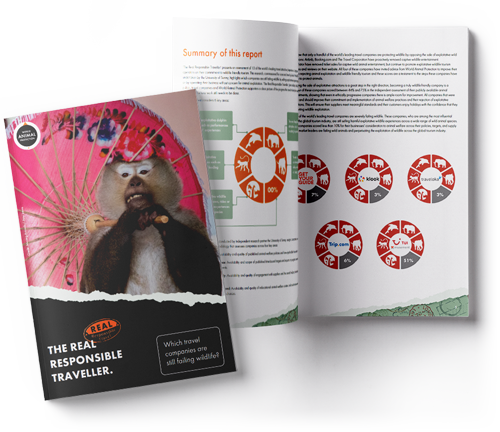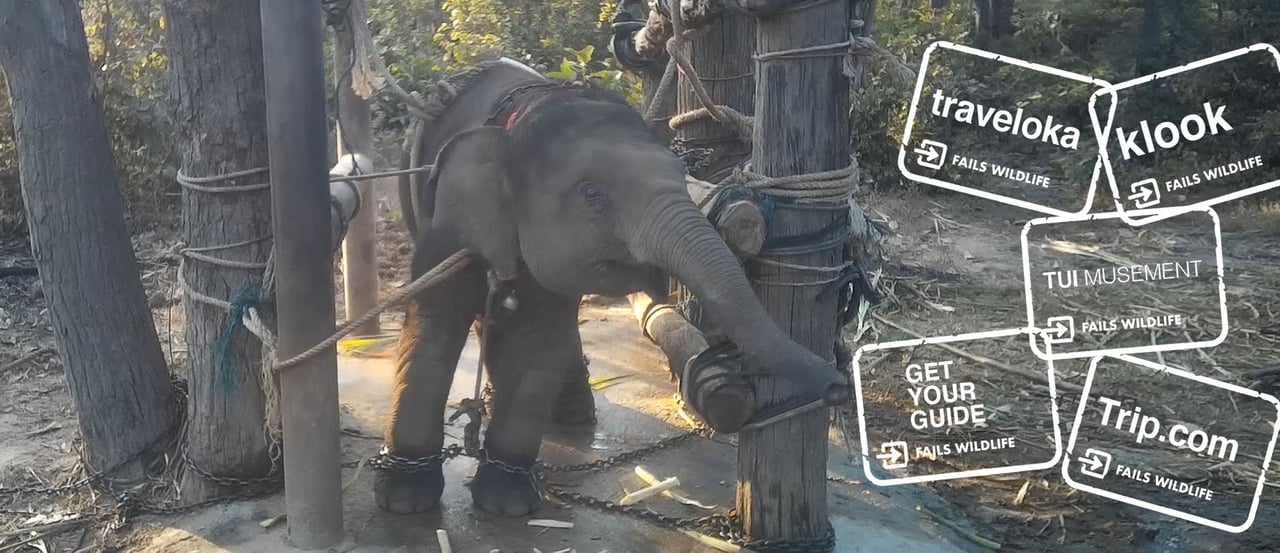
Call them out
The Real Responsible Traveller
Tell the giants of the travel industry to stop profiting from wild animal suffering
Every day, around the world, hundreds of thousands of wild animals like elephants, dolphins, and tigers, are condemned to a life of suffering by being held in captivity to entertain tourists.
Travel giants Traveloka, Get Your Guide, Klook, Trip.com and TUI Musement – continue to profit from wild animal suffering by selling tickets to cruel tourist attractions. These include elephant rides and washing, petting orangutans, tiger cabs made to pose with tourists for selfies, swim-with-dolphin experiences. By doing so, these companies are also fuelling demand for wild animals being taken from the wild, or bred in captivity, and inhumanely trained to be used in the tourism industry.
If you think this is unacceptable and agree that wild animals belong in the wild, will you call these companies out by posting on social media?
Copy the text below and paste it onto your social media:
Together with @MoveTheWorld, I'm calling on @KlookTravel @Trip @GetYourGuide @traveloka @TUIGroup to stop selling tickets to cruel wildlife entertainment venues around the world and change their animal welfare policies. Forever. #RealResponsibleTravel
The more of us that take action, the harder it will be for them to ignore us. Together, let’s push them to stop profiting from wild animal suffering!
To stay up to date with our #RealRepsonsibleTravel campaign and the impact your support is having, subscribe to our newsletter now!
How they fail wildlife
We chose to focus on four species categories - dolphins, elephants, primates, and big cats, as well as a general section encompassing all other wild animal species. These animals were chosen due to their complex ecological, social and behavioural needs, their high levels of sentience and their common use in tourism entertainment.
Failing elephants
Venues offering any type of visitor interaction with elephants are likely to be associated with cruel practices and unnecessary suffering. Activities such as petting or riding elephants require the trainer to establish dominance, and this often requires painful or traumatic training techniques.
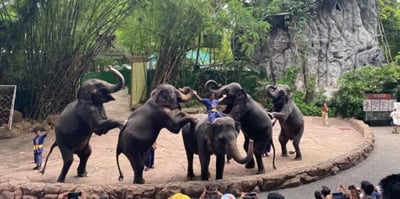
Failing dolphins
marine mammals, like dolphins, is the artificial and baron nature of their captive environment. No facility can replicate the vast reaches of the ocean that these animals traverse.
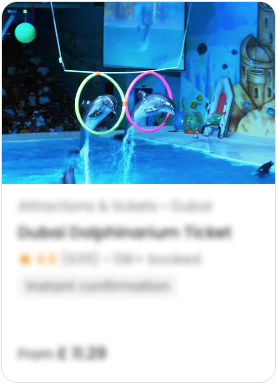
Failing big cats
Exploiting big cats for tourism leads to severe restrictions on their welfare. These animals typically needs large areas of land to roam and have complex behavioural needs that are difficult to address in captivity.
Depriving them of the large home ranges and social structure they need often makes them behave abnormally. Interactions with tourists can further increase stress, which can lead to more behavioural abnormalities and reoccurring health issues.
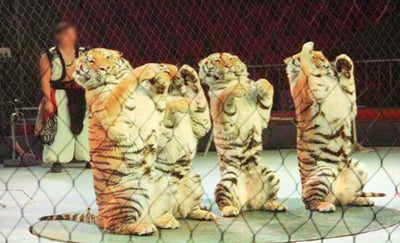
Failing primates
Primates are incredibly intelligent animals and are hard to keep stimulated in a human environment. They are likely to become bored and frustrated, which leads to psychological problems and abnormal behaviour like self-mutilation. In addition to poor mental welfare, these attractions put primates at physical risk. Non-human primates are susceptible to human diseases and contact with tourists puts them at risk.

Read the full report
Unfortunately, most people who seek out captive wildlife experiences are unaware of the cruelty involved in keeping these animals captive and, frequently, the interactions they are forced to endure.
Captive wild animals are not able to fully engage in natural behaviours, impacting both their physical and psychological welfare. Wild animals are sentient beings that experience positive feelings and emotions such as contentment and joy, as well as negative ones such as pain, fear, boredom and frustration.